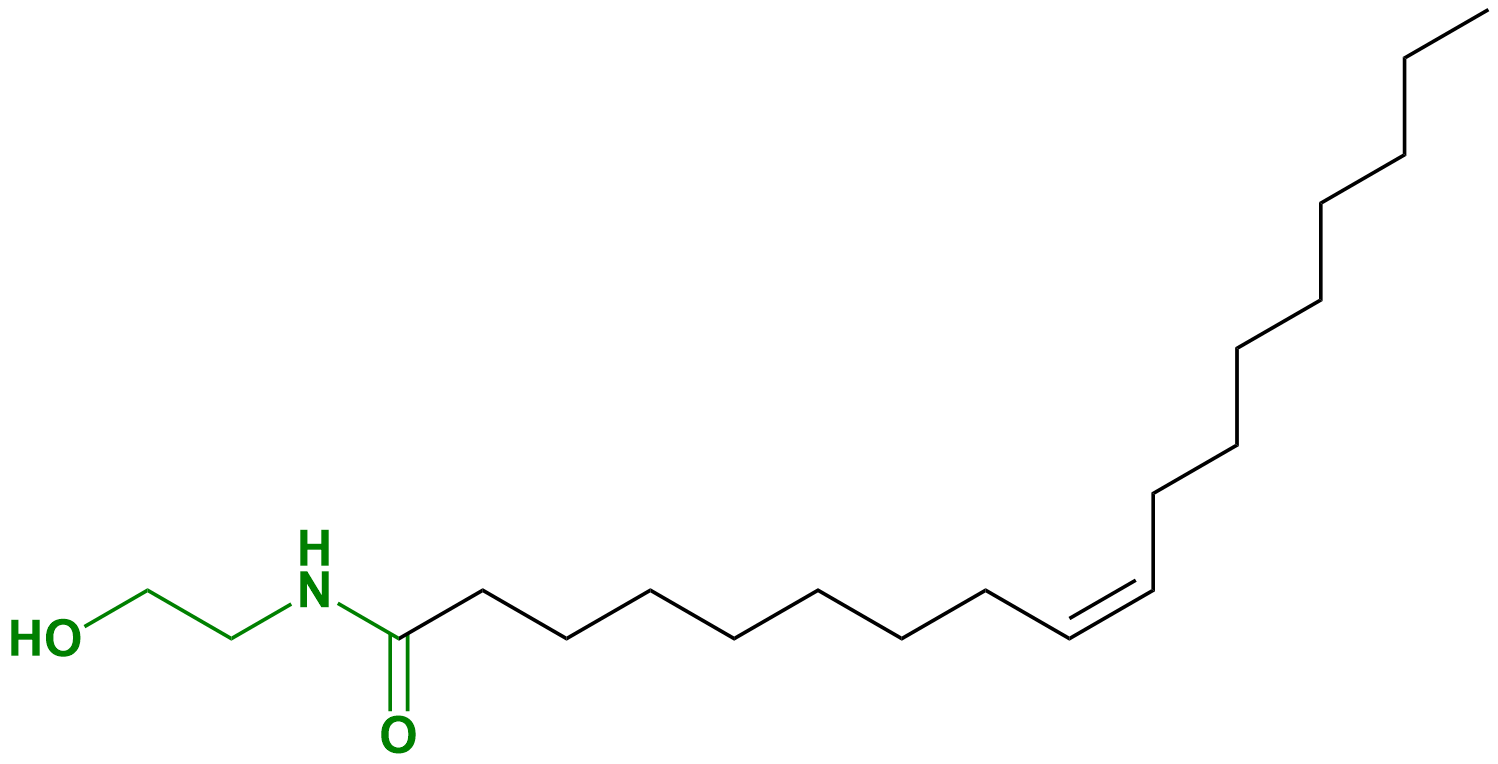Oleoylethanolamide Analysis Service
- Comprehensive Analysis: We investigate the complete profile of oleoylethanolamide in your samples.
- High Sensitivity and Accuracy: Our advanced LC-MS platform ensures high sensitivity and accuracy in the analysis.
- Expert Team: Our experienced metabolomics team ensures high-quality data interpretation.
- New Biomarker Discovery: Identifying potential biomarkers for disease diagnosis and therapy.
- Drug Discovery: Accelerate the discovery and development of innovative therapeutics.
- Mechanism Research: Gain insights into disease mechanisms by studying the role of oleoylethanolamide.
- Animal Tissue: ≥ 100 mg
- Plant Tissue: ≥ 200 mg
- Serum/Plasma: ≥ 200 μL
- Urine: ≥ 2 mL
Oleoylethanolamide (OEA) is an endogenous bioactive molecule with the structure of N-oleoylethanolamine, classified as an N-acylethanolamine (NAE) lipid molecule. OEA has the molecular formula C20H39NO2 and a molecular weight of 325.53 g/mol. Its chemical structure consists of a long-chain oleoyl group and an ethanolamine group. OEA is a fatty acid ethanolamide synthesized by the action of N-acyltransferase on oleic acid and ethanolamine. In the body, OEA is primarily synthesized in the small intestine and is closely related to biological functions such as fat metabolism, appetite regulation, and weight control. The content of OEA in the human body is strongly associated with appetite regulation. As an endogenous fatty acid ethanolamide molecule, OEA can activate PPAR-α receptors, suppress appetite, and promote fat breakdown. Therefore, monitoring OEA content changes can serve as an important biomarker for assessing appetite control, weight management, and related therapeutic interventions.
Fatty acid amide hydrolase (FAAH) is the primary enzyme responsible for OEA metabolism, regulating the rate of OEA degradation. By analyzing OEA metabolites, the effectiveness of FAAH inhibitors can be evaluated, which prolongs OEA's activity in the body, making it a potential target for the development of treatments for obesity or neurodegenerative diseases.

Figure 1. The Structure of Oleoylethanolamide
MtoZ Biolabs is pleased to offer our high-quality Oleoylethanolamide Analysis Service. Capitalizing on our advanced liquid chromatography-mass spectrometry (LC-MS) platform and expert metabolomics team, we provide a comprehensive analysis of oleoylethanolamide, revealing the regulatory mechanisms of oleoylethanolamide under different physiological and pathological conditions, promote the development of related drugs, and provide biomarker support for clinical treatment.
Analysis Workflow
Service Advantages
Applications
Sample Submission Requirements
1. Sample Types
We accept various biological samples including serum, plasma, urine, tissues, and more.
2. Sample Volume
3. Sample Preservation
Please store samples at -80°C to maintain stability and provide details on sample collection and handling.
Deliverables
1. Experimental Procedures
2. Relevant Liquid Chromatography and Mass Spectrometry Parameters
3. Detailed Information on Oleoylethanolamide
4. Raw Data
5. Custom Analysis Report
With our Oleoylethanolamide Analysis Service, we strive to support your research and product development by providing accurate and reliable oleoylethanolamide analysis results. If you would like to inquire about our services, please feel free to contact us.
How to order?







